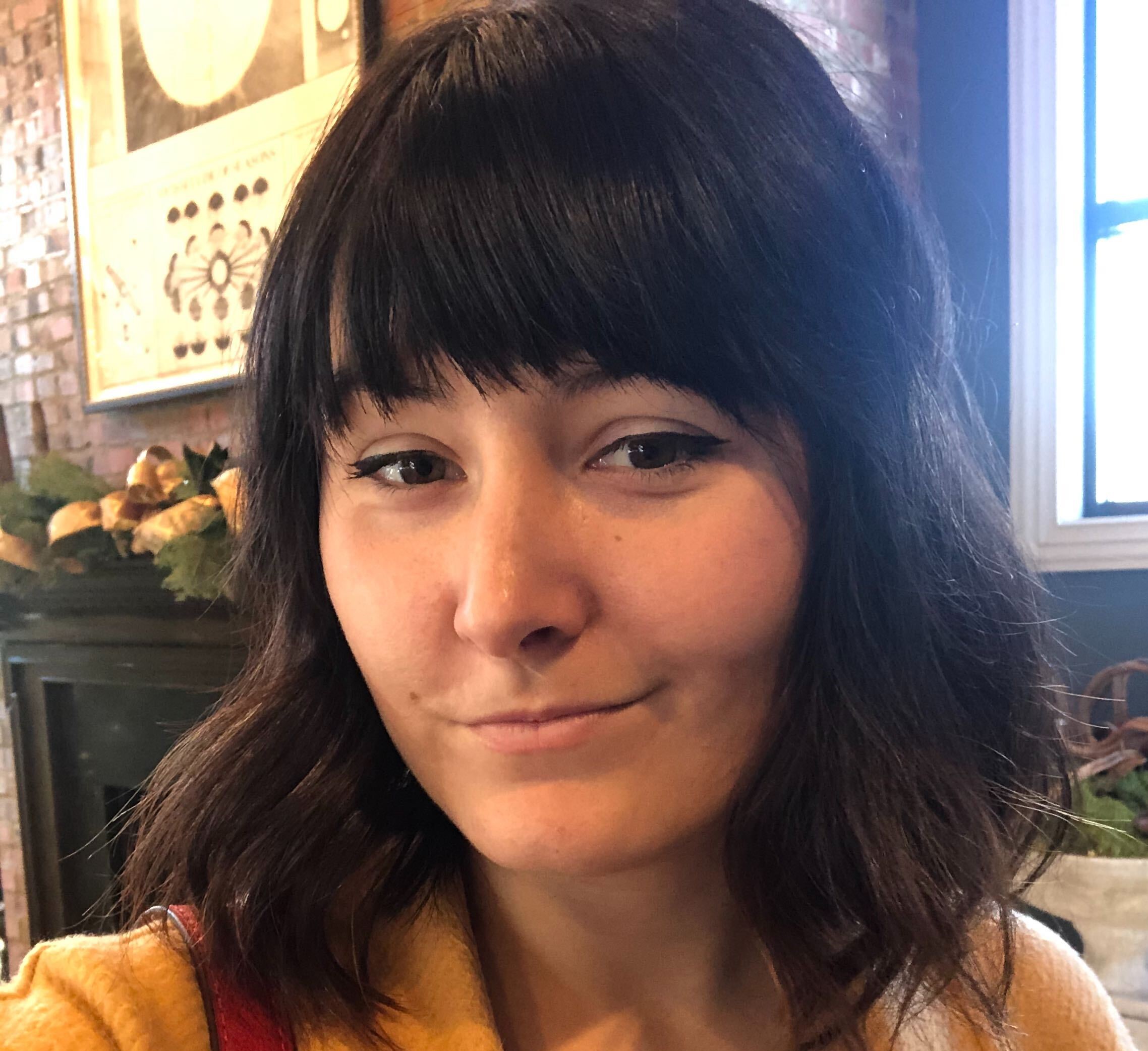Disrupting the Adult Beverage Industry
Taylor Miller | May 27th, 2020

BYBE has taken the adult beverage industry by storm, filling a highly regulated, tough to enter niche. BYBE has transformed the industry by making it possible for retailers to offer alcohol promotions where they previously couldn’t due to regulations. Last week, we held a virtual Startup Grind fireside chat where Ryan Frederick, Principal of AWH, interviewed Kevin Mack, CTO and Co-Founder of BYBE Inc. Kevin spoke about his experience as a Founder and the evolution of BYBE.
What is BYBE?
Before we focus on Kevin, let’s talk about what BYBE is. The adult beverage industry is one of the most regulated industries in the U.S. These regulations make it almost impossible to offer promotions on alcohol, the keyword there being almost, and that’s where BYBE comes in. The combination of skills and knowledge Drew Knight, Ryan Moore, and Kevin Mack brought to the table made it possible for BYBE to succeed where others have failed. BYBE fills a gap in the adult beverage industry by making digital alcohol promotions simple for retailers and retail customers.
Kevin's Journey
Kevin has spent the majority of his career in the digital world, from web development to software development to marketing, his career has taken many turns. He was first drawn to web development as a creative outlet. His mom is a creative director and artist, and instilled in him a deep love for the arts, including digital art. In the late 90s and early 2000s, he would meet with small businesses in the Short North and re-design their websites.
From here he moved on to become a developer and marketer for MI Homes. He was running their internet marketing and creating custom analytics tools to measure their website performance in a pre-Google Analytics era. All the while, he was also doing side work for a company trying to bring native applications into the U.S. I know what you’re thinking, are all Founders workaholics? I haven’t met one yet who isn’t.
He tried becoming an independent consultant, but it wasn’t for him, so he moved on to become a designer and senior developer at Resource Interactive where he started one of the first mobile practices in the industry. During this time, he worked on the highly awarded, first national hashtag campaign. Soon after, his position morphed into a sort of cross over position between the developers and designers. The creative side of the business had out of office meetups and happy hours, but the developers were never invited which inspired Kevin to create a developer meetup, a safe space for them to gather and talk about ideas. This meetup was a hit, and even the designers started to attend, creating the cross-pollination Kevin was striving for. Kevin saw the potential for more, so what started out as a developer meetup quickly snowballed into the Cbus Web Group, now the largest, free education and networking meetup in Columbus, OH. Kevin jokes that it’s not a non-profit or even a for-profit, but a for-loss because the Founders pay out of pocket to make it possible.
Can Working in an Agency Breed Entrepreneurship?
In 2017, an accelerator called Lumos started in Columbus, and at the same time Columbus Web Group wanted to do a talk on accelerators. Thus, Kevin was introduced to Lumos and became a mentor. Lumos is a very early, conceptual stage accelerator. It was through Lumos that Kevin met Drew Knight, a distributor, wine connoisseur and sales expert, and Ryan Moore, an innovation and customer experience expert. They knew everything there is to know about the industry, but nothing about digital products or technology. Kevin was exactly who they needed to round out their merry band. He went from mentor to lead mentor, and then he started hanging out with them on the weekends, that’s when you know it’s really serious. He started joining their sales calls, and then gave them a list of tasks to fulfill, telling them if they could accomplish x, y, and z, he would join them as the third Founder. It was after accomplishing all of these tasks that Kevin could no longer resist the pull and BYBE was formed.
Tech Stars
They created an alpha version of what their product was and pitched it at TechStars. In Kevins words, they “totally bombed it”. They were invited to a happy hour, so they went and networked with every single person there. They just happened to meet the head of an adult beverage who loved their idea. They ended up winning as one of ten. At that point, Kevin left his current job to focus fully on BYBE. Out of all the startups that went through Tech Stars, BYBE is one of three that still exists today.
Slam dunk or apprehension?
Kevin admits, he was impressed by Drew and Ryan from the start. Their idea was a good one, they just didn’t know how to package it or sell it at the time. When Kevin committed to BYBE he didn’t have any hesitation or apprehension. They just started running with it, and Tech Stars just validated what they were doing. BYBE is the solution to a business problem. Kevin and the team simple focused on making that solution a business that is scalable and repeatable.
What was the problem, and how does BYBE solve it?
Many others have attempted, unsuccessfully, to do what BYBE does. The adult beverage category is the highest regulated category for retail. BYBE has developed close partnerships with retailers, but because of the regulations they aren’t allowed to exchange a penny with them. It’s the adult beverage companies that are BYBE’s customers. They mimic the look and feel of other retailer apps and empower retailers to offer coupons, deals, and marketing, but all the offers are created and approved by BYBE alone.
Why BYBE Succeeds When Others Have Failed
Initially, they created a legal team, but it was an expensive endeavor, so they switched to an internal legal counsel and started working with regulators directly. For example, before they go live in any new state, they first seek approval from the regulators in that state. They all have their own regulations and rules, making the whole process incredibly difficult and time consuming. Think about it, you have to teach and explain the tech side of things to every single regulator, sometimes all the way down to the county level.
BYBE Benefits everyone
Adult beverage companies use BYBE because it helps them promote their products and get in front of customers in a way they previously couldn’t. Retailers like BYBE because it brings in more customers, helps them to sell more adult beverages, and provides a lot more data for them to reach demographics they’ve been missing. Lastly, consumers like BYBE because it provides them with coupons and ultimately saves them money. The amount of data BYBE collects as a byproduct is significant. I will start by pointing out they don’t sell customer data but they do make it possible for retailers to connect the dots and discover customer trends.
How was the TechStars Experience?
For Kevin the Tech Stars experience was very unique. They had the opportunity to meet with and pitch to a bunch of mentors and celebrities in the tech world. It was a great experience for them to learn how to sell BYBE to a wide variety of “customers” and it helped them to narrow down the BYBE story. For BYBE in particular, they didn’t have many investors because they can’t take money from retailers or anyone working in the adult beverage industry, making roughly 90% of their potential investors inapplicable. This challenge added to the importance for them to remain incredibly lean as they relied on mostly angel investors.
How Scalable is BYBE?
Scaling is difficult for any company, but BYBE has some specific challenges. When customers redeem a BYBE rebate the money comes directly out of BYBE’s bank account, so when BYBE does well, they have less money in the bank. BYBE floats the cash and then gets money back from the brands. It’s a lot of money out and then back so they have to scale in tiers so they don’t end up scaling too fast. As they grow it becomes more and more important to find efficiencies so they can grow without adding too many people to the team. This need to remain agile and small led them to automate a lot of internal processes that might normally require another body. At this point, they are proud to say they are probably 90% automation and 10% human which allows them to scale relatively easily.
